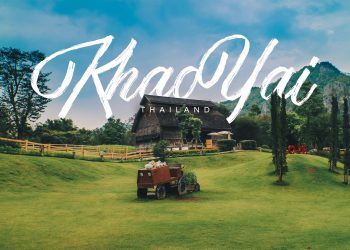For most Singaporeans, buying your very own home is probably the biggest and longest-term financial commitment of their lives. It is a dream that we all long for and are ready to spend decades of our lives, working for. What most first-time home buyers don’t realize though, is that there are much more costs involved in purchasing a home, than originally meets the eye. Buying a home is a long term commitment, and therefore needs careful planning. These hidden and extra costs need to be well known and understood by the prospective home buyer in advance, so that there are no surprises down the line.
There are basically three different groups of costs associated with buying a home in Singapore. They are:
The Standard Costs
These are costs like stamp duty, which are involved in legally acquiring the title of ownership of the property, in your name.
The Financing Costs
These are costs that you will incur if you have to borrow money to pay for the house.
Miscellaneous Costs
These include a multitude of little expenses that when combined, often quickly add up.
The Standard Costs
Booking Fee
Once you have decided on the exact property that you want to purchase, Singaporean law demands that you make a deposit of 5 -10% of the value of the property. This deposit secures you the Option To Purchase (OTP) the home. What the OTP does for you, is that it compels the seller to make the property available to you for a period of 3 weeks. If you decide to go ahead with the purchase, then you will have to ‘exercise the option’ by signing the Sale & Purchase agreement, and making a down payment on the house. You are still allowed to change your mind anyway, but if you should decide not to buy the house, then the law requires that you will also have to forfeit 25% of the Option Fee.
Down Payment
The down payment is the initial amount that you pay for a rental property, before completing the rest of the transaction with borrowed funds. Down payments are calculated as a percentage of the cost of the property. Depending on the property you are purchasing, and whether it is a HDP (Housing & Development Board) property or not, plus your loan terms, the down payment of a property can be anywhere between 10-50% of the property’s price. An average down payment percentage is 20% anyway, since the legal limit for bank loans of less that 30 years tenure is 80% of the property’s price. If you borrow for longer than 30 years, the maximum loan you can get will be only 60% of the property’s price. Additionally, this down payment can either be completely made in cash, or with cash and your CPF savings. In this case, a maximum of 15% can be paid with the CPF, leaving the remaining 5% to be covered by cash.
Buyer Stamp Duty
You have to pay tax to the government when you purchase a property, and this tax is called the Buyer Stamp Duty. It is either paid at the acceptance of the Option To Purchase the property or at the signing of the Sales & Purchase Agreement. The Buyer Stamp Duty is calculated as a percentage of the sale price, and graded in increments of S$180,000. The first S$180,000 of the sale price is taxed at 1%, while the second S$180,000 segment is taxed at 2%, with everything thereafter, taxed at 3%.
Additional Stamp Duty
The Additional Stamp Duty (ABSD) was introduced as a means of preventing an uncontrollable real estate boom in Singapore. First announced in 2011, it was revised in 2013, still with the aim of cooling down the property market. The ABSD is based on the citizenship of the buyer, and the amount of properties previously purchased, it is as follows:
Scenario 1. For a Singaporean Citizen, 0% is paid on the first property, with a 7% tax for a second property, and a 10% for third and subsequent properties.
Scenario 2. For a Singapore Permanent Resident, 5% tax is paid on the first property, with 10% for the second and subsequent properties.
Scenario 3. For foreigners and non-individuals, the tax rate is a flat 15%.
Conveyancing Fees
Conveyancing fees refers to mortgage stamp duty, which is a 0.4% tax on the mortgage amount secured, CPF fees, if CPF savings would be used, and the lawyer’s fees. For the average home owner, conveyancing fees should be in the S$1,800 to S$2,500 range. Many legal firms will include all these fees in their price quotes, while others will not. So it is important that you do your homework first and ask them, to avoid surprises.
Broker’s Fees
You may engage the services of a real estate salesperson. In this case, you should be looking at paying a 1% commission, especially if you are buying an HBD home. For other properties, the trend is increasingly for sellers to pay the broker’s fees.
The Financing Costs
Most people who buy homes do not actually have the full amount of money to pay for it, so they use a mortgage. Mortgages are not entirely free anyway, and there are other costs as well associated with borrowing money. You should keep in mind that Singaporean law allows you to use a maximum of 60% of your income in servicing debt. This is called the Total Debt Servicing Ratio (TDSR) and is a total of all debts, including car loans, credit card debts e.t.c. Following are the costs associated with financing:
Valuation Fees
When you request a loan from a bank, the bank will request a valuation of the property first, before it can release any funds for your property. Typical valuation fees range between S$250 and S$500.
Interest Payments
After purchasing your home with a mortgage, it will then be time to make your monthly mortgage payments. Although a mortgage payment is better than paying rent, because it goes towards providing yourself with a rent-free home after 2 to 3 decades of payments, there are still costs involved with mortgages. A simple 2.5% interest on a S$500,000 home for example, will end up costing you over S$100,000 in interest payments over a 20 year period. As you can see, financing a property with a mortgage actually increases the purchase price by an average of 20%. It could be more or less, the actual figure will depend on the certain factors like the type of property, is it HDB related or not? and your exact loan conditions. That is, the interest rate and the tenure.
Miscellaneous Costs
Miscellaneous costs may not have to do with the purchase process of the property, but they are nonetheless costs that you incur by purchasing a property. They are a variety of them, and they include:
Renovation Costs
These only apply if you are not buying a brand-new property.
Maintenance Fees
These apply only when you purchase a condominium or any other type of property that comes with extra services.
Furniture
For most people moving from an apartment into a house, there will always be a need for more furniture.
Maintenance & Repairs
Owning your own home creates the extra responsibility of having to manage everything. This means that you will have to replace broken tiles by yourself, pay for a plumbing fault, or for a roof repair if that ever becomes needful.
Conclusion – The Opportunity Cost
In conclusion, it is necessary to also mention that there is an opportunity cost associated with buying your own home. Unlike the other costs though, the opportunity cost of buying a home is rather incalculable. Owning a home is a beautiful dream shared by families the world over, and not just in Singapore. Surely, the money spent in securing the home could have been possibly used in launching a business that could have generated gains a 100 times more of the initial money, or maybe not. One thing for sure though, is the old saying that a bird in hand, is worth two in the bush.
The article is brought to you by propertyguru.sg











Discussion about this post